By Alisha Verly-Jensen and Krista Kurlinkus
If you ever needed evidence of the overemphasis our society places on productivity, look no further than the advice commonly dished out during the ongoing pandemic. Article after article advised us to learn a new skill, start a new business, do anything but sit down and process the emotional, and for many, catastrophic events that were affecting billions of people across the world every day.
If ever there was a time to discuss the importance of rest, it’s now, while so many of us are facing every type of imaginable uncertainty.
Prioritizing rest means more than scheduling a nap in the middle of a hectic work day. It means valuing periods of downtime equally, if not more so, than productive periods. It means turning the very drivers of the most destructive aspects of capitalism, unrelenting growth without the consideration of consequences, on its head.
Prioritizing rest is, at its very core, a form of resistance.

One of the pioneers of the Rest as Resistance movement is activist and poet, Tricia Hersey. While studying at Emory University, Hersey was also caring for her child on her own and navigating a precarious financial situation. The additional pressures brought on by the many high-profile murders of Black people by police put Hersey over the edge.
She fought back by reclaiming her rest time and taking naps on her campus lawn. These resting sessions eventually became the Nap Ministry, an organization rooted in Black Liberation and Womanist Theology that uses performance art to remind the world of the importance of rest. The Ministry’s napping experiences are open to people all over the world, and aim to create a community founded on restoration, reflection, and peace. (Hersey’s blog can be found here: The Nap Ministry)
Why rest is important for activists, nonprofit leaders, and BIPOC

At first glance, the idea of rest may not seem political or ideological at all. However, throughout history, the ability to rest has been granted on an identifiably classist and racist basis.
During American slavery, enslaved people were not afforded the privacy or freedom to rest comfortably. Productivity was tied so much to the slave owner’s bottom line that enslaved people were forced to work days on end without reprieve.
When enslaved people began to present the cumulative effects of sleep deprivation, such as making mistakes or falling into deep sleep instantaneously, it was then used as evidence of Black people’s inferiority and lack of work ethic. Thus, the cycle continued. In recent years, studies have revealed the lasting impacts of racializing rest.
To this day, Black and brown people experience higher rates of sleep disorders and related cardiovascular health issues. Rather than the slave master’s quotas causing these disparities, it is the collective effect of limited access to healthcare, living in more dangerous communities, working low-wage jobs with few to no benefits, and facing the ongoing stress of racial discrimination.
The rise of the toxic “hustle” culture has also turned sleep deprivation into a badge of honor. This type of capitalistic mythology only serves to substantiate the claim that poverty is a choice, made because of laziness. Yet all this time, the benefits of rest and the importance of high-quality sleep have been widely known and well-documented.
Proper rest is essential to our health and literally adds years to our lives. Rest is one of the most effective protective factors against burnout, a debilitating condition caused by occupational stress. We all deserve rest, especially those who are on the front lines, caring for others every day.
People in the nonprofit sector are highly-susceptible to burnout due to the passionate and at-times heart wrenching nature of their work. In this line of work, scheduling rest periods and listening to bodily cues to rest are not optional, but a preservative act. You deserve to rest, which means you must prioritize rest the same way you prioritize work.
Not sure how to prioritize rest?

Here are some strategies that work for us:
Take a nap instead of pushing through exhaustion, drinking more caffeine, or scrolling social media when you’re tired and can’t focus.
Even 20 minutes can change your whole day. Don’t think you can sleep during that short window? Just lie down and close your eyes–no phone, no t.v., no podcast or audiobook.
Even if you don’t sleep, that time will still be more restful than if you were scrolling or taking in information somehow.
Evaluate the tasks and processes you do often (whether for work or personal/home).
What is essential? What’s non-essential? Oh, everything is essential? I bet it’s not. What is truly essential? Is having a perfectly clean floor essential? No.
Ask yourself, if I gave up this task, what’s the worst that could happen? If it’s not illness, hunger, loss of income, or worse, it’s not as essential as you think.
Cut the non-essentials and fill the time in which you would normally do those tasks with rest.
Not sure how to rest? Explore what feels restful to you.
Nap, snuggle up on the couch with a movie, journal, daydream, read a book that’s not super challenging, go for a leisurely walk. Mostly, put away the digital technology, which research shows makes us tired, even when used for entertainment. Rest looks different for everyone. Note how you feel before you do the restful activity; then note how you feel afterward. You’ll figure it out. I promise.
Make a list of activities you find restful and keep it on a note in your phone or in a journal.
When you can’t think of how you could rest, refer to your list.
Feeling guilty for resting? Come up with a mantra to repeat to yourself when you start feeling guilty.
Here’s one: Rest is resistance. Rest is radical. I deserve rest.
Are other people trying to make you feel guilty for resting? Explain to that person that you need rest and everyone deserves rest.
If they don’t get it, point them to the Nap Ministry website. Then let them figure out the rest; it’s not your job to educate them. You’re busy resting, remember?
And saving the most important for last: if you’re white, help BIPOC get more rest by paying them for their work–professional, intellectual, physical, and emotional. (Krista speaking here!)
Don’t just give them props or credit for their work. Don’t just say I support you. Don’t just say I’m an ally or I’m an anti-racist.
Pay them. If they have a Venmo or PayPal account link, send them $5 (or more) when you can. BIPOC are historically underpaid, undervalued, and terrorized every day. White people have reparations to make.
I’m not saying I’m a good white person. I’m not saying I do enough. I’m learning. I’m working on it. Here’s what I do now and am trying to do more frequently:
When I see a social media post about racism or other forms of discrimination by a friend (or even a businessperson/online influencer I follow and don’t personally know) that hits me, I send them money. When they give me insight or knowledge that I wouldn’t have had otherwise, I send them money. When I see them doing work in the community, for free, I send them money.
I suggest that you do the same as often as you can.
That’s it for this post. Go take a nap now. Seriously.
After your nap, join us over on Facebook and Instagram to share how you’re prioritizing rest!






